Why Should I Visit Palestine?
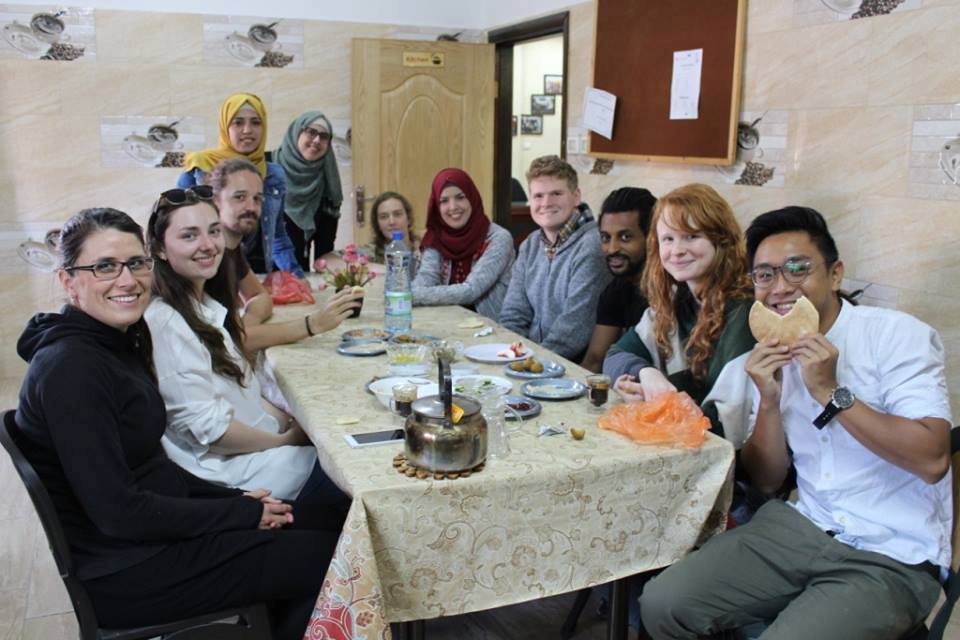 Travelling to any country in the world requires a reason or a motivation. Each country has its own reasons to attract travelers to pack their bags. Reasons also differ according to individuals, and can include work, education, visiting historical sites and archeological areas, recreation and many others.
Travelling to any country in the world requires a reason or a motivation. Each country has its own reasons to attract travelers to pack their bags. Reasons also differ according to individuals, and can include work, education, visiting historical sites and archeological areas, recreation and many others.
As with any other country, Palestine has its own attractions which draw people from thousands of miles away. The question is what Palestine has to offer as a possible destination for you? What makes Palestine so special? Why should you visit Palestine and not Jordan or Lebanon instead?
Here are ten reasons and motivations that might convince you to come to Palestine for a visit.
- Palestine is a Beautiful Country
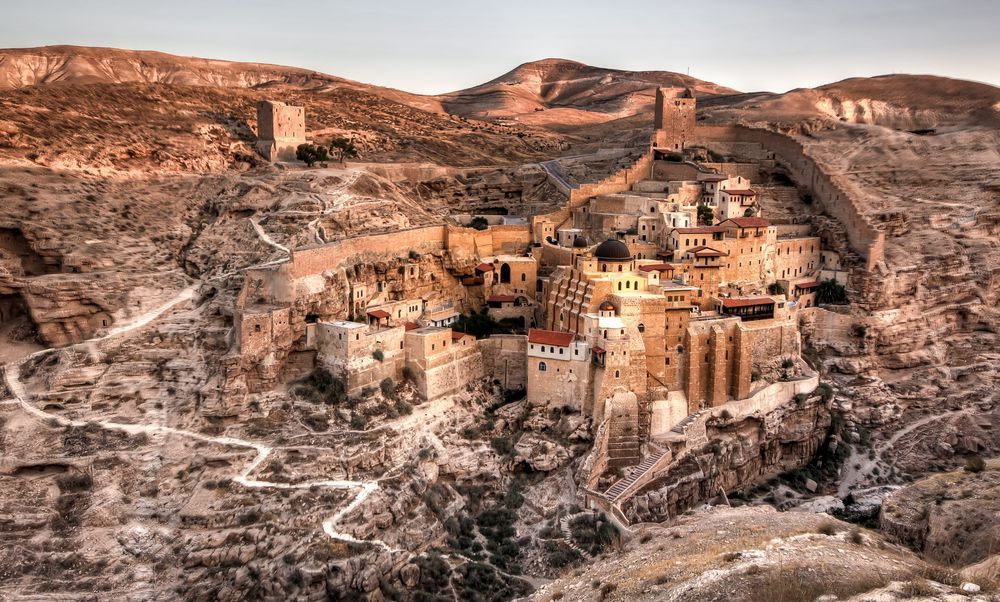 Whether you enjoy the sight of tree-covered hills that seem to go on forever, or the glow of city lights along an urban skyline, Palestine has something to offer everyone in terms of aesthetic appeal.
Whether you enjoy the sight of tree-covered hills that seem to go on forever, or the glow of city lights along an urban skyline, Palestine has something to offer everyone in terms of aesthetic appeal.
Smaller towns in the south, such as Beit Sahour and Beit Jala, are surrounded by greenery, and the mountainous landscape makes an awe-inspiring view easy to find. The more arid regions, such as those surrounding the Dead Sea, provide a stunning contrast to the life that they sustain.
The metropolitan areas also contain a wealth of amazing things to see; the souq of Hebron is colorful and lively; the architecture of much of Jerusalem’s Old City dates back thousands of years, transforming a quick walk toward Jaffa Gate into a trip back through time; the street art of Bethlehem illustrates the struggles of its inhabitants, capturing the humanity of a society in turmoil. Beauty is abundant in Palestine, in many forms and many places.
- Delicious Food
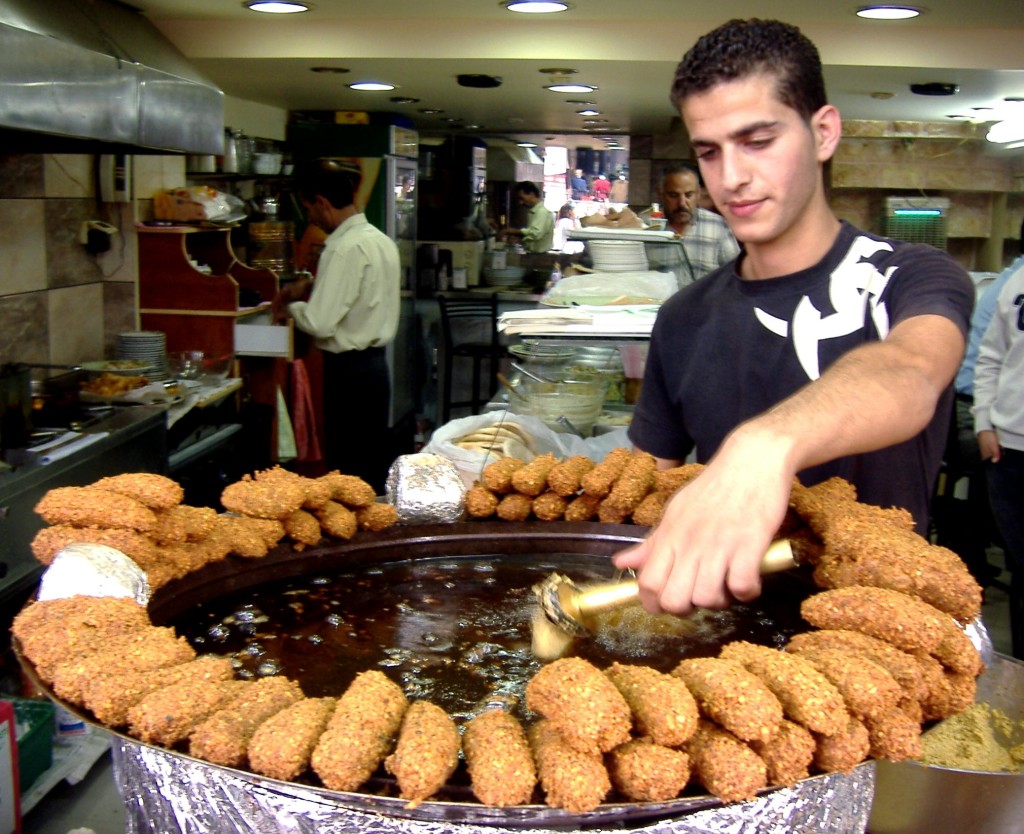 Palestinian food is typically fresh and healthy. You won’t find any frozen dinners or canned soups, and fast food is far less common than in a Western country. Produce is a staple of most snacks and meals, and often fresh from the garden. Many products are locally sourced, and if you’re lucky enough to spend time with a Palestinian family, you’ll sample a variety of delicious homemade dishes.
Palestinian food is typically fresh and healthy. You won’t find any frozen dinners or canned soups, and fast food is far less common than in a Western country. Produce is a staple of most snacks and meals, and often fresh from the garden. Many products are locally sourced, and if you’re lucky enough to spend time with a Palestinian family, you’ll sample a variety of delicious homemade dishes.
The Palestinian table is always full of a variety of dishes despite the weak economy. Palestinians are renowned for presenting delicious yet affordable food that mainly contains meat and ghee. There are not many vegetarians in Palestine, and while there are no specific statistics on the precise number, you can tell that there are not many because most restaurants base their menus around meat.
Palestinians start their day after having a rich breakfast that usually includes pita bread, labneh (close to sour cream), sliced tomatoes and cucumbers, olive oil with Za’atar (a mixture of dried herbs) as well as fried or boiled eggs, and in some cities hallum cheese or yellow cheese and fuul (fava bean stew). Tea is always there to accompany any meal.
Lunch in Palestine has more options than breakfast. For instance, Palestine is literally full of restaurants that sell different types of sandwiches. The most preferred types of sandwiches are falafel, a deep-fried ball or patty made from ground chickpeas, fava beans, or both, and shawrma, which is stuffed with meat and salad.
- The Value of its Holy Sites
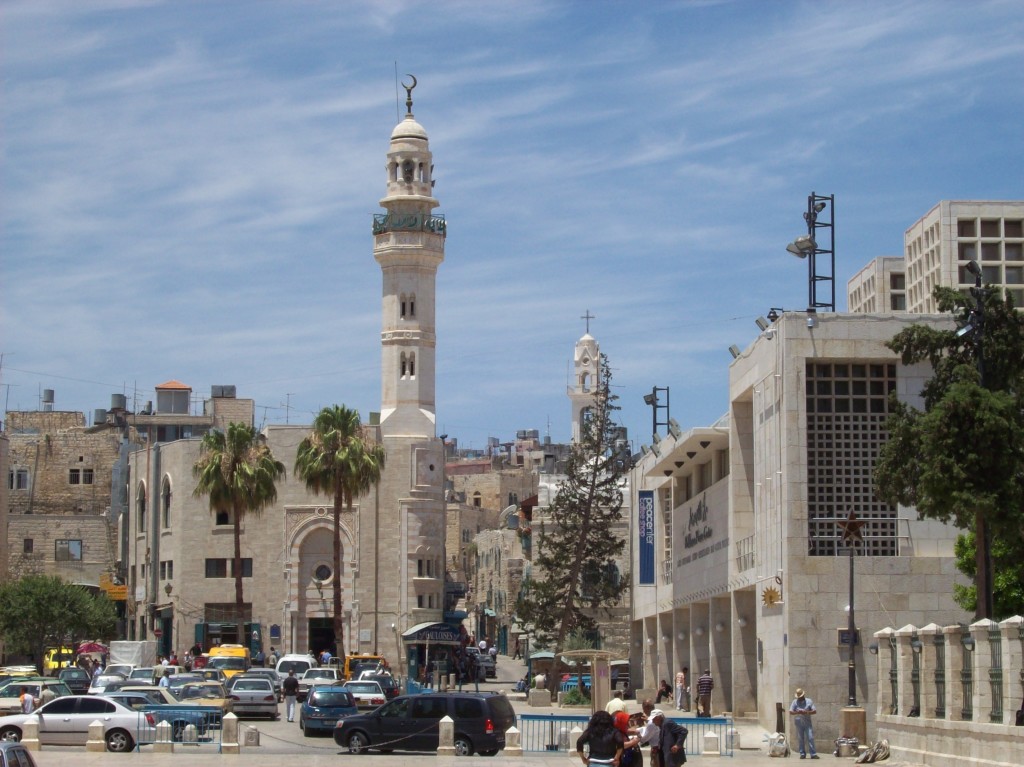 Palestine holds countless sites of tremendous value to Islam, Judaism, and Christianity. The more well-known places include the Temple Mount and Church of the Holy Sepulchre in Jerusalem, the Church of the Nativity in Bethlehem, and al-Ibrahimi Mosque and Machpelah Cave in Hebron, but if you dig a bit further, there’s a wealth of hidden gems to be found. On the southern outskirts of Jerusalem sits Rachel’s Tomb, notable for its sacred atmosphere despite a surrounding military zone.
Palestine holds countless sites of tremendous value to Islam, Judaism, and Christianity. The more well-known places include the Temple Mount and Church of the Holy Sepulchre in Jerusalem, the Church of the Nativity in Bethlehem, and al-Ibrahimi Mosque and Machpelah Cave in Hebron, but if you dig a bit further, there’s a wealth of hidden gems to be found. On the southern outskirts of Jerusalem sits Rachel’s Tomb, notable for its sacred atmosphere despite a surrounding military zone.
A short walk from the Church of the Nativity, down an unassuming alley, is the Milk Grotto, another holy site in Christianity. Among the bustling chaos of Hebron city life, you can find Abraham’s Oak. It’s located on land owned by the Russian Orthodox Church, alongside a small monastery. Regardless of your religion, each site is a place of peace and beauty.
Palestine is a place full of history and beautiful things to see and do. Driving along in the Service or taxi and watching the gorgeous scenery is a pleasure itself.
- The Unique Industries
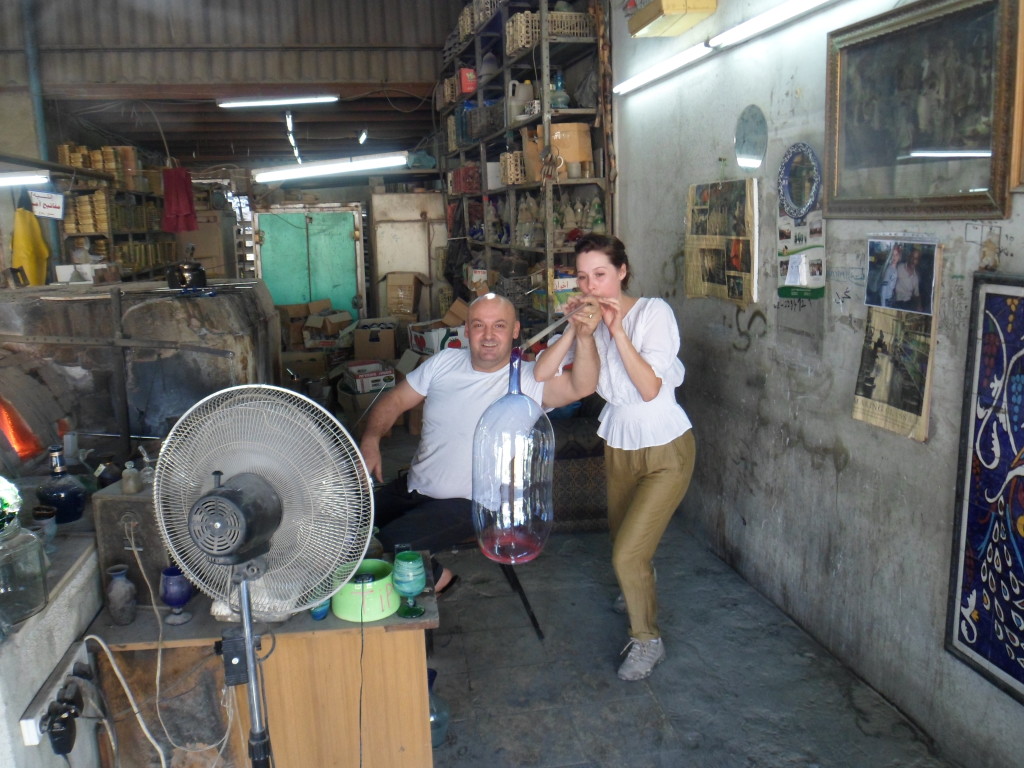 Palestine creates some of the most unique products in the world. It’s home to a number of glass and ceramic factories, in which a few dedicated workers use their skills to create beautiful pieces of art. Glass is painstakingly blown using age-old methods, and ceramics are hand-sculpted and painted with intricate detail. The factories often have an open layout, allowing visitors to watch the artists in action. The textile industry is also popular, including keffiyeh and beautifully embroidered clothing and accessories. Olive-wood carvings are widely available in Bethlehem, and are renowned for the wood’s natural beauty and resilience. Cosmetic products made from fresh olive oil and Dead Sea mud are also a unique find.
Palestine creates some of the most unique products in the world. It’s home to a number of glass and ceramic factories, in which a few dedicated workers use their skills to create beautiful pieces of art. Glass is painstakingly blown using age-old methods, and ceramics are hand-sculpted and painted with intricate detail. The factories often have an open layout, allowing visitors to watch the artists in action. The textile industry is also popular, including keffiyeh and beautifully embroidered clothing and accessories. Olive-wood carvings are widely available in Bethlehem, and are renowned for the wood’s natural beauty and resilience. Cosmetic products made from fresh olive oil and Dead Sea mud are also a unique find.
- The Language
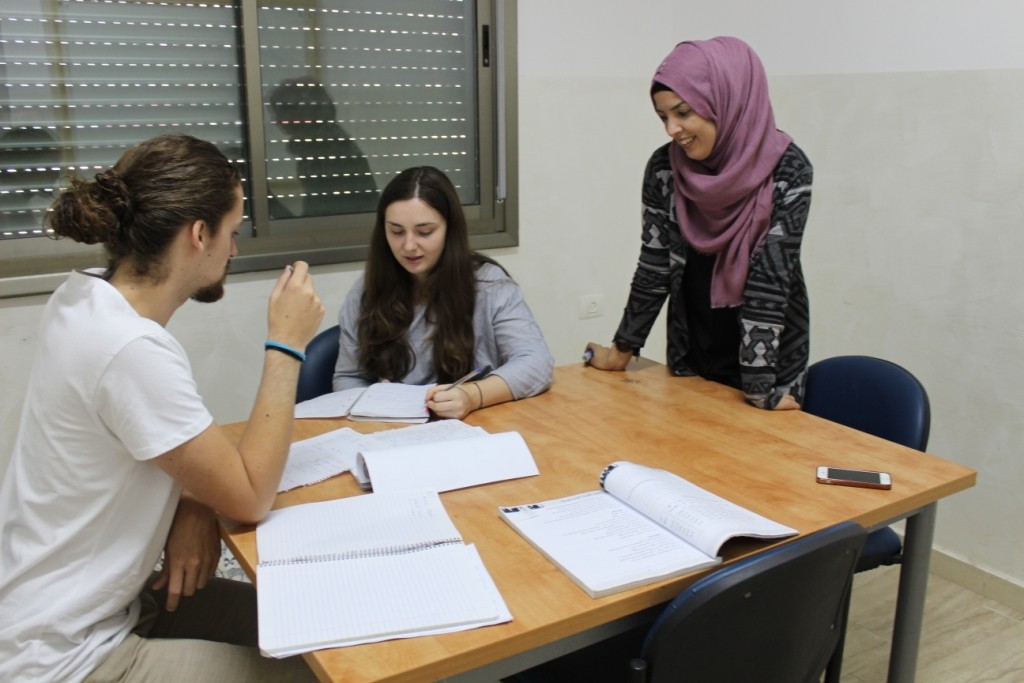 Arabic is a beautiful and complex language, with a seemingly endless number of dialects and accents. Levantine Arabic is the dialect of choice in Palestine, and if you’re studying the language, this is especially important. Levantine Arabic, used primarily in Jordan, Syria, Lebanon, and Palestine, most closely resembles the formal Modern Standard Arabic taught in universities and language centers. Studying Arabic in an Arabic-speaking society is also an excellent way of acquiring conversation skills much faster than you would elsewhere.
Arabic is a beautiful and complex language, with a seemingly endless number of dialects and accents. Levantine Arabic is the dialect of choice in Palestine, and if you’re studying the language, this is especially important. Levantine Arabic, used primarily in Jordan, Syria, Lebanon, and Palestine, most closely resembles the formal Modern Standard Arabic taught in universities and language centers. Studying Arabic in an Arabic-speaking society is also an excellent way of acquiring conversation skills much faster than you would elsewhere.
- Culture in Palestine
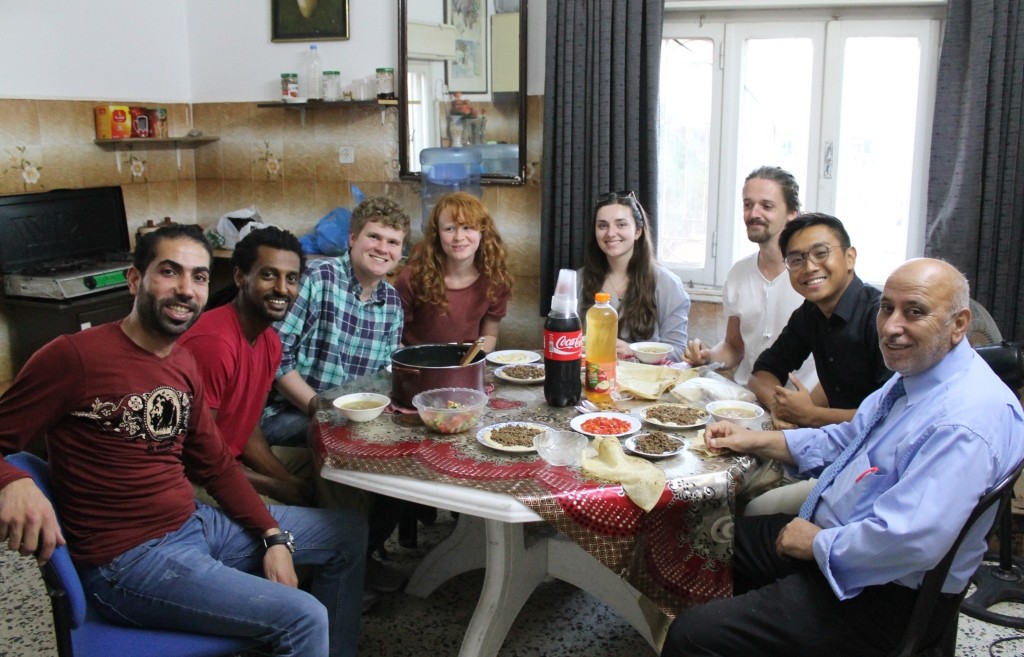 Palestinian culture is one of the most hospitable in the world. Guests are offered every comfort; tea, food, and good conversation are the staples of Palestinian social life. Friends and strangers alike will take a genuine interest in your life, history, and opinions, and will readily share their own stories with you. Even families that might not have much will share what they have, and do their best to make you feel comfortable and at ease.
Palestinian culture is one of the most hospitable in the world. Guests are offered every comfort; tea, food, and good conversation are the staples of Palestinian social life. Friends and strangers alike will take a genuine interest in your life, history, and opinions, and will readily share their own stories with you. Even families that might not have much will share what they have, and do their best to make you feel comfortable and at ease.
Palestinians are eager to show internationals the Palestinian culture and engage them in many different family and cultural activities which will make your trip to Palestine full of memories and enjoyable moments. Not only this, but they are also keen to learn about other cultures and the daily habits of other visitors and how they spend their time.
Palestinian culture is based on not only on helping family members and neighbors but also passersby whoever that person is and where ever they can possibly offer any help. Moreover, and despite their differing views, Christians and Muslims live alongside one another which lends a harmony to Palestine. This harmony imbues Palestine with a special beauty. An example of this harmony is the site of the Church of the Nativity and the Mosque of Omar bin al-Khattab, both share the same location in Manger Square and the heart of Bethlehem.
- To Learn the Truth
 When you’re playing football with your host brother, or having coffee on a balcony overlooking a city skyline, it can be easy to forget Palestine’s tumultuous history. Unfortunately, the reality of the occupation is inescapable for those who call Palestine their home. Walls exist in many forms; the separation barrier surrounding the West Bank is the most recognizable, but economic, political, and social blockades are obstacles that can be just as limiting. However, there is much to be learned from each side of the conflict.
When you’re playing football with your host brother, or having coffee on a balcony overlooking a city skyline, it can be easy to forget Palestine’s tumultuous history. Unfortunately, the reality of the occupation is inescapable for those who call Palestine their home. Walls exist in many forms; the separation barrier surrounding the West Bank is the most recognizable, but economic, political, and social blockades are obstacles that can be just as limiting. However, there is much to be learned from each side of the conflict.
Sometimes what you hear is totally different from what you really see and realize with your own eyes. As Galileo Galilei once said, “All truths are easy to understand once they are discovered; the point is to discover them.” Therefore, in order to discover the truth, you need to explore and figure it out by yourself. What you will see will definitely shock and surprise you, and it will explain and reveal to you the full truth about the ongoing situation. Here you will be able to hear people’s stories about the conflict and about their vision regarding any possible settlement. The media often does not show the full image or the current realities, rather, it is only highlighting one small angle of the daily life of people here.
- Affordable Prices
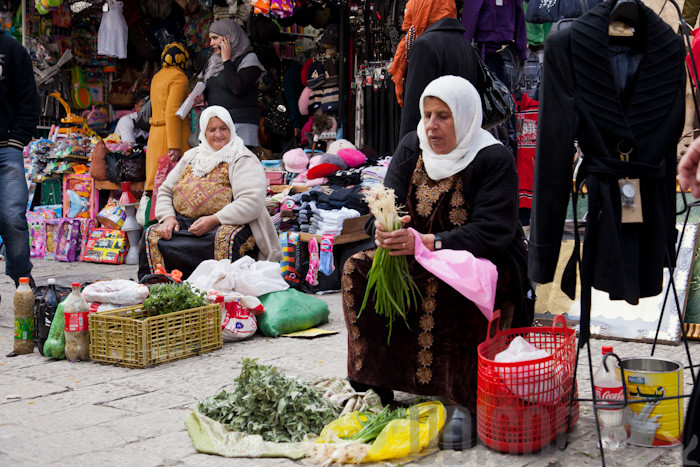 All travelers think twice about the budget of their trips. Most of them, especially students, try their best to spend as little as possible, or even choose a country that fits their budget limit. Palestine is considered to be an inexpensive place to visit compared to other countries. Here, for example, you can have full lunch or dinner for three or four American dollars. Transportation is also cheap in Palestine, within the West Bank service fees can range from 15 to 40 NIS one-way, per person, depending on the distance of the drive. Within cities private taxis will range in fees from two to fifteen NIS. Hostels in Palestine are also affordable, the average price of a night’s stay ranges from $12 to $15 US per night.
All travelers think twice about the budget of their trips. Most of them, especially students, try their best to spend as little as possible, or even choose a country that fits their budget limit. Palestine is considered to be an inexpensive place to visit compared to other countries. Here, for example, you can have full lunch or dinner for three or four American dollars. Transportation is also cheap in Palestine, within the West Bank service fees can range from 15 to 40 NIS one-way, per person, depending on the distance of the drive. Within cities private taxis will range in fees from two to fifteen NIS. Hostels in Palestine are also affordable, the average price of a night’s stay ranges from $12 to $15 US per night.
- Palestine is a Small Country
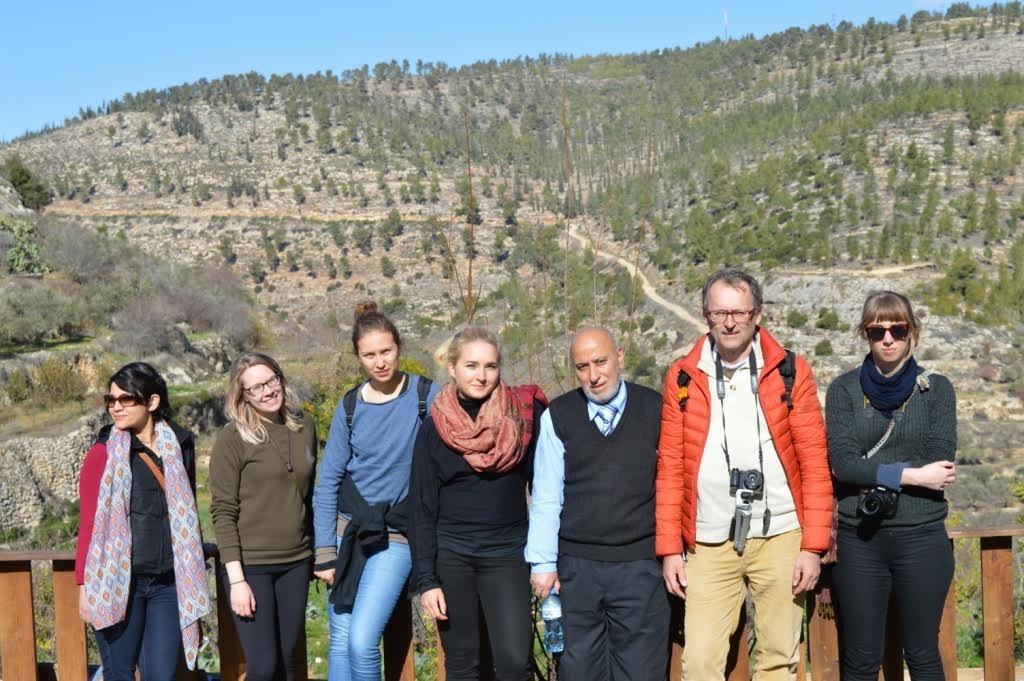 Palestine is a small country which means that it does not take a long time to travel from one city to another. Therefore, you will be able to visit almost every place in Palestine in a short time and with less costs. This also will give you the opportunity to see all Palestinian cities and how each city in Palestine is different from one another when it comes to culture, diversity, climate, and nature.
Palestine is a small country which means that it does not take a long time to travel from one city to another. Therefore, you will be able to visit almost every place in Palestine in a short time and with less costs. This also will give you the opportunity to see all Palestinian cities and how each city in Palestine is different from one another when it comes to culture, diversity, climate, and nature.
- Moderate Weather
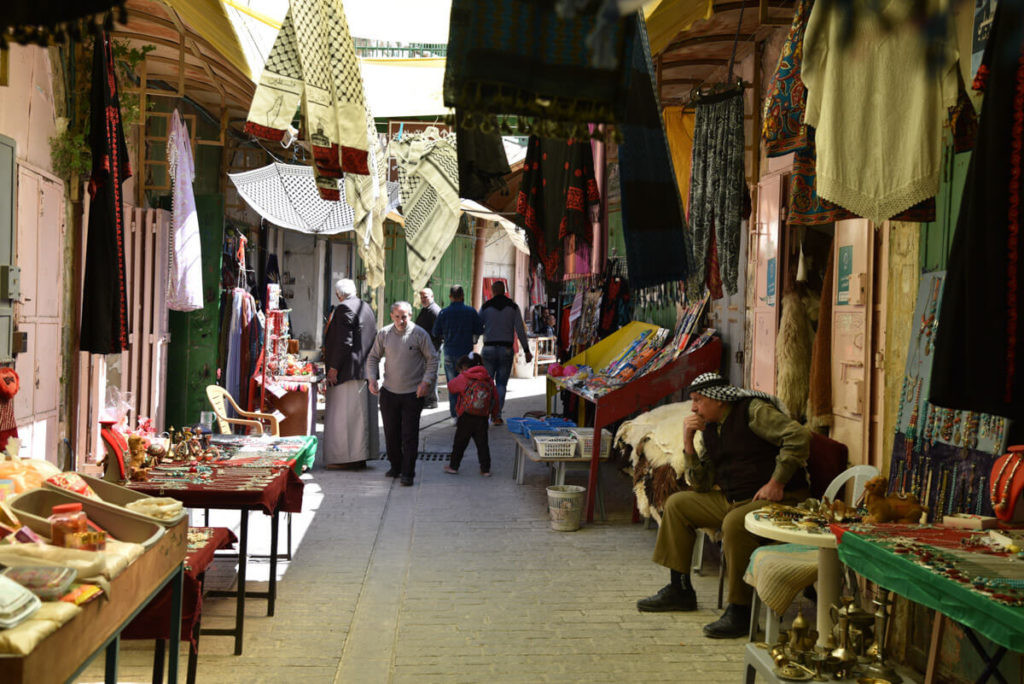 The location of Palestine, situated on the eastern Mediterranean coastline, and adjacent to the Sinai Peninsula and the Jordanian desert, plays an important role in the weather of Palestine. Its position is directly responsible for the enjoyable moderate and mild climate of Palestine.
The location of Palestine, situated on the eastern Mediterranean coastline, and adjacent to the Sinai Peninsula and the Jordanian desert, plays an important role in the weather of Palestine. Its position is directly responsible for the enjoyable moderate and mild climate of Palestine.
Winter in Palestine spans about three months duration, and the temperature sometimes does fall to zero; however, it does not usually snow in Palestine. In recent years, it has snowed only twice.
Summers in Palestine are hot. July and August are the hottest months in Palestine. The Temperatures may reach 30 degrees Celsius (86 Fahrenheit), and even higher some days. Although the summer is hot, the evenings are cool. Evenings are popular for going out to enjoy the cooler weather after a hot day. A sweater or light jacket may be comfortable for evenings.
The climate during the remainder of the year is mild and moderate. Rainfall in Palestine is very limited, with the rainiest months occurring from November to February. Every year during April, May, and in the middle of June, Palestine faces hot, dry, sandy and dusty khamseen winds which originate in the Arabian Desert. During the winter Palestine experiences seven hours of sunshine, while there are about 13 hours of daylight during the summer.
This moderate weather makes Palestine a place to visit in summer and in winter, which makes your journey enjoyable no matter what time you are coming to Palestine.
In conclusion, each traveler will have his or her own reasons for coming to see the country that is located in the heart of the Middle East. No matter which of the above-mentioned reasons motivates you to come, know that you are not alone and that many have already decided to come and have enjoyed their time exploring beautiful Palestine.


